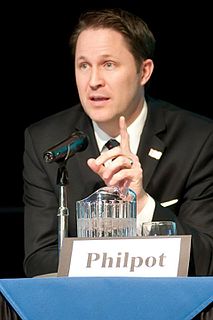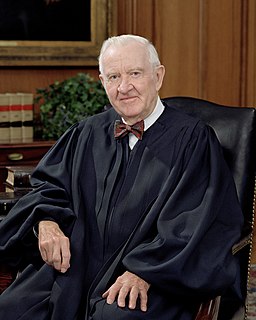A Quote by Eric Hoffer
They who clamor loudest for freedom are often the ones least likely to be happy in a free society.
Related Quotes
Advertising and the free society are closely connected. Advertising helps to make a free society remain so by increasing competition, and by helping to maintain the freedom of the mass media themselves. The free society is one where advertising and advertising agencies are likely to be in considerable demand, though it is true that even in a totally centralist society there would still be a need for organisations and people to have access to mass communication media.
In the end, more than freedom, they wanted security. They wanted a comfortable life, and they lost it all – security, comfort, and freedom. When the Athenians finally wanted not to give to society but for society to give to them, when the freedom they wished for most was freedom from responsibility, then Athens ceased to be free and was never free again.
True freedom is not advanced in the permissive society, which confuses freedom with license to do anything whatever and which in the name of freedom proclaims a kind of general amorality. It is a caricature of freedom to claim that people are free to organize their lives with no reference to moral values, and to say that society does not have to ensure the protection and advancement of ethical values. Such an attitude is destructive of freedom and peace.
The importance of our being free to do a particular thing has nothing to do with the question of whether we or the majority are ever likely to make use of that particular possibility. To grant no more freedom than all can exercise would be to misconceive its function completely. The freedom that will be used by only one man in a million may be more important to society and more beneficial to the majority than any freedom that we all use.
It may be that a free society... carries in itself the forces of its own destruction, that once freedom has been achieved it is taken for granted and ceases to be valued, and that the free growth of ideas which is the essence of a free society will bring about the destruction of the foundations on which it depends.
[M]ore than they wanted freedom, the Athenians wanted security. Yet they lost everything-security, comfort, and freedom. This was because they wanted not to give to society, but for society to give to them. The freedom they were seeking was freedom from responsibility. It is no wonder, then, that they ceased to be free. In the modern world, we should recall the Athenians' dire fate whenever we confront demands for increased state paternalism.
Human beings have a drive for security and safety, which is often what fuels the spiritual search. This very drive for security and safety is what causes so much misery and confusion. Freedom is a state of complete and absolute insecurity and not knowing. So, in seeking security and safety, you actually distance yourself from the freedom you want. There is no security in freedom, at least not in the sense that we normally think of security. This is, of course, why it is so free: there's nothing there to grab hold of.
Ineptocracy (in-ep-toc'-ra-cy): A system of government where the least capable to lead are elected by the least capable of producing, and where the members of society least likely to sustain themselves are rewarded with goods and services paid for by the confiscated wealth of a diminishing number of producers.
Because you've been exposed to Western tonal music, you know after a certain chord sequence what the next possibilities are. Your brain has compiled a statistical map of which ones are most likely and least likely. If the song keeps hitting the most likely notes, you'll get bored, and if it's always the least likely ones, you'll get irritated.
We must show that liberty is not merely one particular value but that it is the source and condition of most moral values. What a free society offers to the individual is much more than what he would be able to do if only he were free. We can therefore not fully appreciate the value of freedom until we know how a society of free men as a whole differs from one in which unfreedom prevails.
As a matter of constitutional tradition, in the absence of evidence to the contrary, we presume that governmental regulation of the content of speech is more likely to interfere with the free exchange of ideas than to encourage it. The interest in encouraging freedom of expression in a democratic society outweighs any theoretical but unproven benefit of censorship.



































